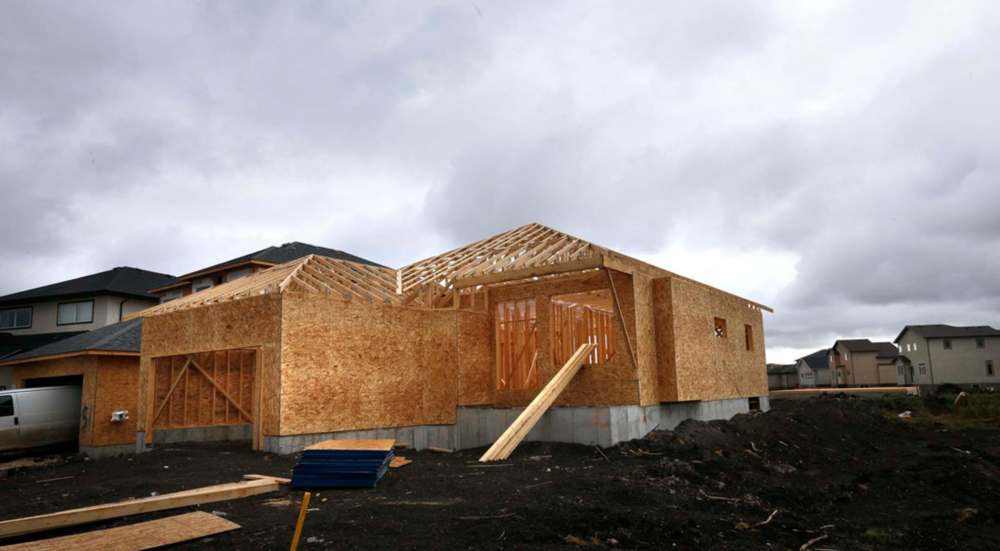Pandemic puts brakes on new construction
Advertisement
Read this article for free:
or
Already have an account? Log in here »
To continue reading, please subscribe:
Monthly Digital Subscription
$1 per week for 24 weeks*
- Enjoy unlimited reading on winnipegfreepress.com
- Read the E-Edition, our digital replica newspaper
- Access News Break, our award-winning app
- Play interactive puzzles
*Billed as $4.00 plus GST every four weeks. After 24 weeks, price increases to the regular rate of $19.95 plus GST every four weeks. Offer available to new and qualified returning subscribers only. Cancel any time.
Monthly Digital Subscription
$4.99/week*
- Enjoy unlimited reading on winnipegfreepress.com
- Read the E-Edition, our digital replica newspaper
- Access News Break, our award-winning app
- Play interactive puzzles
*Billed as $19.95 plus GST every four weeks. Cancel any time.
To continue reading, please subscribe:
Add Free Press access to your Brandon Sun subscription for only an additional
$1 for the first 4 weeks*
*Your next subscription payment will increase by $1.00 and you will be charged $16.99 plus GST for four weeks. After four weeks, your payment will increase to $23.99 plus GST every four weeks.
Read unlimited articles for free today:
or
Already have an account? Log in here »
Hey there, time traveller!
This article was published 21/09/2020 (1958 days ago), so information in it may no longer be current.
OTTAWA — The COVID-19 pandemic has steered Winnipeg’s housing market away from a glut of new builds, according to federal data released Monday morning.
“There has been an impact on both the resale and the new-home sides; we’ve seen a slowdown in new construction,” Heather Bowyer, a senior market analyst with the Canada Mortgage and Housing Corp., told the Free Press.
In its recurring Housing Market Assessment comparing this February to September, the CMHC said it still has moderate evidence of overbuilding in the city, but the pandemic has brought the pace of construction to below the agency’s level of concern.

“Before we lower the degree of vulnerability we want to see this trend persist, and not (be) sort of a blip or a one-off,” Bowyer said.
The agency monitors household incomes along with the cost and availability of various types of housing across Canada’s largest cities. For the Winnipeg area, which includes East and West St. Paul and municipalities with a large share of commuters, the agency isn’t concerned about the cost of homes and rentals, nor about inflated prices.
Ever since 2016, the CMHC has been closely watching whether too much is being built in the city, which could disrupt the balance of supply and demand needed to keep a stable housing market.
“We see a switch from condominiums to rental units, especially apartment-style, so this is contributing to a slowdown in completions, and a trending lower of the overbuilding metric in Winnipeg,” Bowyer said. That could change if people start moving to different cities at the same pace they did before the pandemic, Monday’s report notes.
Nationally, the agency found “evidence of rising imbalances,” with housing availability shifting along the lines of income inequality in cities like Toronto.
Bob Dugan, CMHC’s chief economist, said his team’s projection could change as people shift from government benefits, especially if there are more layoffs and pay cuts.

“The unprecedented amount of government financial support to households through initiatives like the CERB significantly boosted disposable income in the second-hand quarter,” he told reporters.
dylan.robertson@freepress.mb.ca

